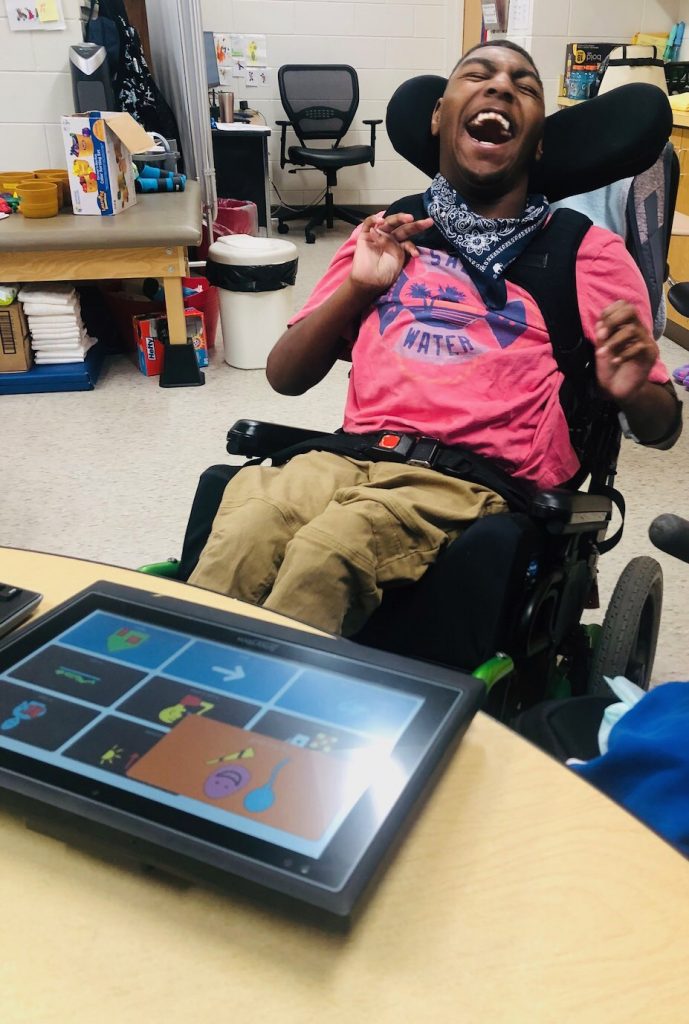8/26/2024
·Enable high contrast reading
Tips for a successful school year

 I’m sharing the things that have worked for me. I’m sharing the things that I’ve discovered work for me for not only my son to have a successful school year, but for his teachers, the team and myself as well to have a good year as well. I write this as a mom of a 15-year-old who is in the eighth grade and who has repeated every grade except pre-K (He would have had I known that was an option). I write this as a mom of a child who experienced neglect in the classroom resulting in harm. I write this as a mom who took legal action against the school district. I write this as a mom who is known as THAT mom, and it is a title that I proudly carry. I write this as a mom who not only wants my child to be successful but wants that for yours as well. This is the blueprint that I use for my family, son, teachers, and team to have successful school years. Some of these tips may work for your family, others may not.
I’m sharing the things that have worked for me. I’m sharing the things that I’ve discovered work for me for not only my son to have a successful school year, but for his teachers, the team and myself as well to have a good year as well. I write this as a mom of a 15-year-old who is in the eighth grade and who has repeated every grade except pre-K (He would have had I known that was an option). I write this as a mom of a child who experienced neglect in the classroom resulting in harm. I write this as a mom who took legal action against the school district. I write this as a mom who is known as THAT mom, and it is a title that I proudly carry. I write this as a mom who not only wants my child to be successful but wants that for yours as well. This is the blueprint that I use for my family, son, teachers, and team to have successful school years. Some of these tips may work for your family, others may not.
This is the first year that I’ve not posted any pictures or had any rants about open house or the first day of school drop off or pick-up. Wondering why? Because we didn’t go! My son missed the first week of school due to our cross-country road trip! And I was completely okay with it. All of his supplies and everything that he needed were dropped off early, so he was set for the new school year whenever he arrived. There was no stress, anxiety, or frustrations. It was the best back to school experience I could have asked for.
Expectations
- What do you expect of your child?
- What do you expect of the teacher(s) and district?
- How do you convey these expectations?
Record Keeping
- If it’s not in writing, it didn’t happen.
- Follow up every meeting, phone call, hallway/classroom chat (if decisions were being discussed) with an email.
- If it’s not in writing it didn’t happen.
IEPs/504
- Take someone else with you, even if simply for moral support.
- Have your child participate in the meeting – part of it if not all of it.
- Know your rights (this should be given at EVERY IEP meeting).
- You can call a meeting any time during the year; it’s not limited to once a year.
Supplies
- Use the patient portal as much as possible to get physician signatures on med forms and plans of care (seizures, respiratory, etc.).
- Contact insurance or home health company and request double supplies (ie g-tube extensions) so there is a set in the classroom. Pharmacy: ask for an extra bottle with the current label for school use. This cuts down on sharing meds between home and school.
Let Go
- Refer to your expectations.
- Know that bad things may happen.
- Accept that you can’t control everything and still expect growth and independence to happen (whatever independence looks like for your child).
Typical vs Normal
- Understand what your “normal” is and ask what “typically” happens in that grade. What field trips are there? What class presentations, plays, sports, etc.
- Ask and learn what activities and programs are available for your child in the school and the district.
- Attend your district’s board of education meetings to be better informed of the typical experiences and priorities of the district.
Open House/School Events
- Be cognizant of your stress level and what you can handle without losing your mind.
- If you absolutely want to have the experience, go at the very beginning or right before it’s over.
- I highly recommend scheduling a time to go a day before to avoid the inconsiderateness that ensues with the madness.
Ask questions
- Ask all the questions you have and repeat until you have answers that make sense to you.
- Know the chain of command or hierarchy in the school and district.
- Take notes and follow-up in writing. Refer to #2 Record Keeping
- ASK ALL the questions you have and repeat until you have answers that make sense to you.
Gather resources
- P2P USA – https://www.p2pusa.org/
- Parent mentor (many school districts have them).
- Learn or get a cheat sheet of the alphabet soup that accompanies receiving special education services.
- Think College – https://thinkcollege.net/
Create a support system
- Other parents.
- Previous teachers, therapists.
- Community based organizations and/or clubs.
Have other tips to offer or want to hear more about a certain tip? Reach out to me at connect@courageousparentsnetwork.org
Naomi D. Williams is a perfectly imperfect person on a mission to empower individuals and families to live their best life, now. As a Life Doula, she helps people navigate and process major life altering events. Naomi believes anyone and everyone can and should lead an exceptional life. She is the proud mother of a former 26-week preemie who lives with a host of diagnoses that fall under the primary umbrella of spastic quadriplegia cerebral palsy. She uses her and her son’s past and present experiences to inform and partner with healthcare systems as they live out the consequences of not being considered a valuable member of their care team. Naomi is the author of And God Remembered Noah: A mother’s heart-opening journey through 22 weeks in the NICU. When not advocating for her family or others, you can find Naomi getting lost exploring nature or taking a deep breath on her yoga mat. Find her at exceptionalliving101.org , Noahland.Art and on LINC-d. com or Linked In





